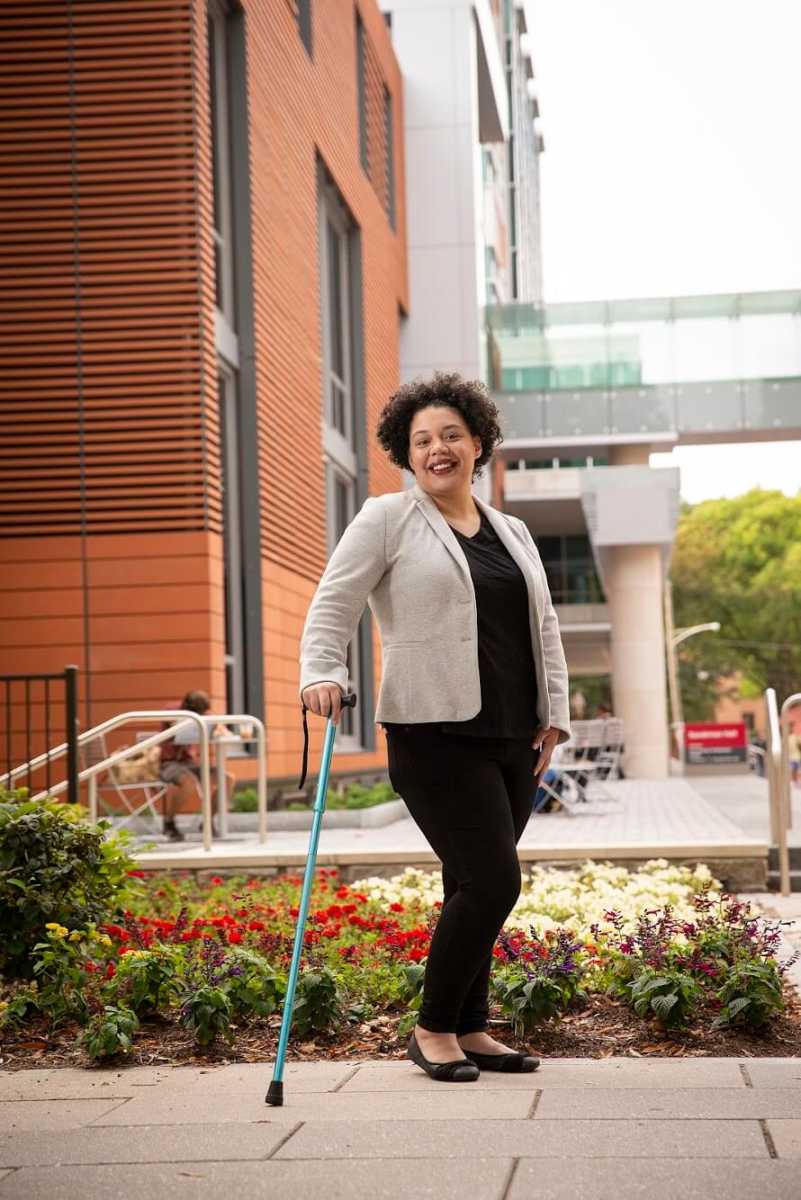
Natasha Graves’s start-up launched in February, but she decided to stop marketing it a month later.
When the novel coronavirus hit, she put off plans to promote her travel website, which is geared toward people with disabilities. She considered it inappropriate to encourage travel during a global pandemic to an audience more likely to have chronic medical conditions.
Her business, VacayAbility, features user reviews and ratings on attractions, hotels and restaurants, with a focus on accessibility-related factors.
“I compare it to like Trip Advisor, but for accessibility,” Graves, 30, of Overbrook, said.
It’s personal for Graves, who uses a feeding tube and has mobility issues. She has several conditions, including POTS, Sjogren’s syndrome, inflammatory arthritis and gastrointestinal dysfunction.
Her health forced her to leave her dream job four years ago working in adolescent and reproductive health for the Philadelphia Department of Public Health. Graves began receiving Social Security disability payments and had to move away from her apartment in a trendy section of Kensington.
“I went from my almost $70,000 career in public health to being on food stamps within a month,” Graves said.

She loves to travel, and, about 18 months ago, went to see a specialist at the Mayo Clinic in Scottsdale, Arizona, for treatment. A quick Google search about things to do nearby featured hikes, hikes and more hikes — a no-go for Graves.
“It became more time-consuming for me to find things to do in my off-time than it was preparing for these doctor’s appointments, just trying to find things that were accessible to me,” she said.
Graves came up with the idea of VacayAbility, and, upon returning to Philadelphia, began presenting her plan at pitch competitions, mainly at Temple University, where she received her MBA.
She won several prizes and used the funding to begin developing the website in November.
Users can create free accounts to review businesses and tourist sites. They give a star rating in several categories, indicating whether the establishment has accessible bathrooms and is allergy-friendly, for example.
Reviewers can write their own comments and also respond to questions about various topics, including if the business has food and water available and if it provides wheelchair rentals.
It’s not just for those with mobility-related disabilities. The site features ratings about accessibility for people who are deaf or hard of hearing; who are blind or have low vision; and for people looking for sensory-friendly settings.
During the pandemic, Graves has pivoted to blog posts about virtual tours and has been reaching out to people to make them aware of the site.
“I guess I’m sort of on the luckier side because it is a newer business, and I was not necessarily attached to some of my strategies as much as somebody who has been in it a little longer,” she said.
She has received COVID-19-related small business loans and grants to stay afloat. VacayAbility, as of yet, does not have any employees apart from Graves.
Right now, she is beginning to plan her marketing strategy to attract travelers to join the site and populate it with listings and reviews.
In February, at the start-up’s one-year mark, she plans to turn her attention to businesses and offer a tiered system for signing up.
Companies will be able to set up an account for free to “claim” their page, and a paid account will allow them to add information to their portion of the site. For more money, they can advertise on VacayAbility and offer coupons and specials.
VacayAbility is her first business, and Graves acknowledges that, due to her medical conditions, she can’t commit as much time to it as most other young entrepreneurs. Sometimes, she won’t be physically able to work on the business for weeks.
She has a weakened immune system, and, early in the pandemic, her doctor advised her to not leave her house, even to walk her dog.
Graves has had to cancel three planned trips to more to a dozen countries as a result of COVID-19.
She struggles with the limitations and lengthened timeline for her business, but she hopes it can become a resource and online hub for people with disabilities who live to travel.
“I think it’s very important to highlight that even though I have a disability I can still contribute to society, but there are a lot of obstacles to face,” Graves said.


































